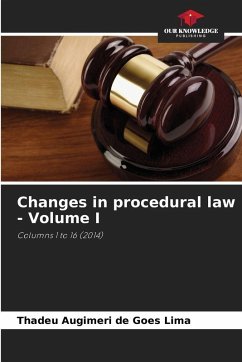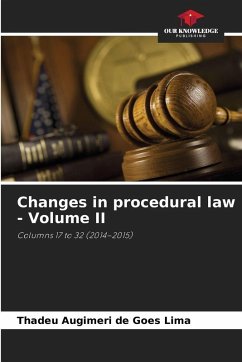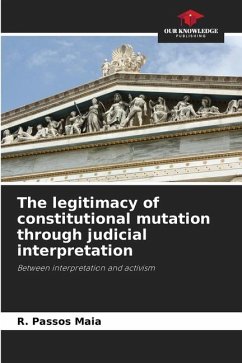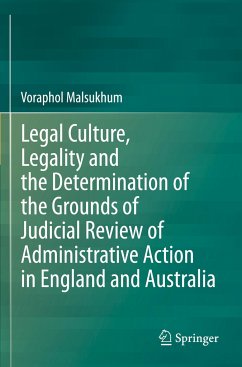
The breakdown of procedural stability through the rescission action
Fundamental considerations on stability in civil procedure
Versandkostenfrei!
Versandfertig in 6-10 Tagen
37,99 €
inkl. MwSt.

PAYBACK Punkte
19 °P sammeln!
The aim of this book is to systematise knowledge about the fundamental aspects of the rescission action in Brazilian procedural law, taking into account the legislative transition between the CPC/73 and the NCPC. To this end, fundamental notions about destabilisation in Brazilian law are presented. The following themes stand out in particular as the subject of the chapters: the axiological structure of the rescission action - the values and principles responsible for shaping the rules of destabilisation -; the object of the rescission action - which stabilities can be broken by means of the re...
The aim of this book is to systematise knowledge about the fundamental aspects of the rescission action in Brazilian procedural law, taking into account the legislative transition between the CPC/73 and the NCPC. To this end, fundamental notions about destabilisation in Brazilian law are presented. The following themes stand out in particular as the subject of the chapters: the axiological structure of the rescission action - the values and principles responsible for shaping the rules of destabilisation -; the object of the rescission action - which stabilities can be broken by means of the rescission mechanism -; the grounds for destabilisation - which hypotheses authorise the breaking of stability -; and, finally, the time limits for destabilisation - how long a procedural stability should last.














